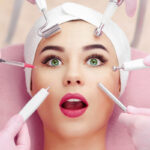THE WHAT? L’Occitane has revised its privatization bid, providing shareholders an option to choose between HK $34 (US$4.35) per share in cash or 10 shares in the new private company for every share held.
THE DETAILS The initial privatization bid was made in April by billionaire chairman Reinold Geiger, who partnered with Blackstone and Goldman Sachs to fund the US$1.8 billion takeover. Geiger currently owns over 70% of L’Occitane’s shares. The company, which has been listed in Hong Kong since 2010, needs the consent of at least 90% of minority shareholders for the offer to succeed. The cash offer values L’Occitane at US$6.4 billion.
L’Occitane owns several well-known brands, including its namesake L’Occitane en Provence, the skincare line Elemis, and the popular Gen-Z body and fragrance line Sol de Janeiro. Given the success of brands like Sol de Janeiro, which is expected to reach US$1 billion in retail sales this financial year, some shareholders may feel that the current cash offer undervalues the firm.
THE WHY? The revised offer aims to sway shareholders who are reluctant to accept the original cash bid, believing it doesn’t fully reflect the company’s value. By offering equity in the new private company, L’Occitane hopes to provide an incentive for shareholders to support the privatization.
Clinical aesthetics products refer to a category of products used in the field of medical aesthetics or cosmetic dermatology. These products are typically designed and formulated to be used under the supervision of healthcare professionals, such as dermatologists, plastic surgeons, or trained aestheticians. They are distinct from over-the-counter cosmetics in that they often contain active ingredients or formulations that require expertise in their application or administration.
Examples of clinical aesthetics products include:
-
Dermal Fillers: Injectable substances used to add volume, smooth wrinkles, and enhance facial contours. Examples include hyaluronic acid fillers like Juvederm and Restylane.
-
Botulinum Toxin (Botox): Injectables that temporarily paralyze facial muscles to reduce the appearance of wrinkles caused by repetitive movements, such as frown lines and crow's feet.
-
Chemical Peels: Solutions applied to the skin to exfoliate and improve its texture. They can treat acne, pigmentation issues, and signs of aging.
-
Laser and Light Therapies: Devices that emit focused light or laser energy to treat various skin conditions, including acne, scars, and signs of aging.
-
Prescription Skincare Products: Formulations containing active ingredients like retinoids (vitamin A derivatives), hydroquinone, or prescription-strength antioxidants to address specific skin concerns under medical supervision.





